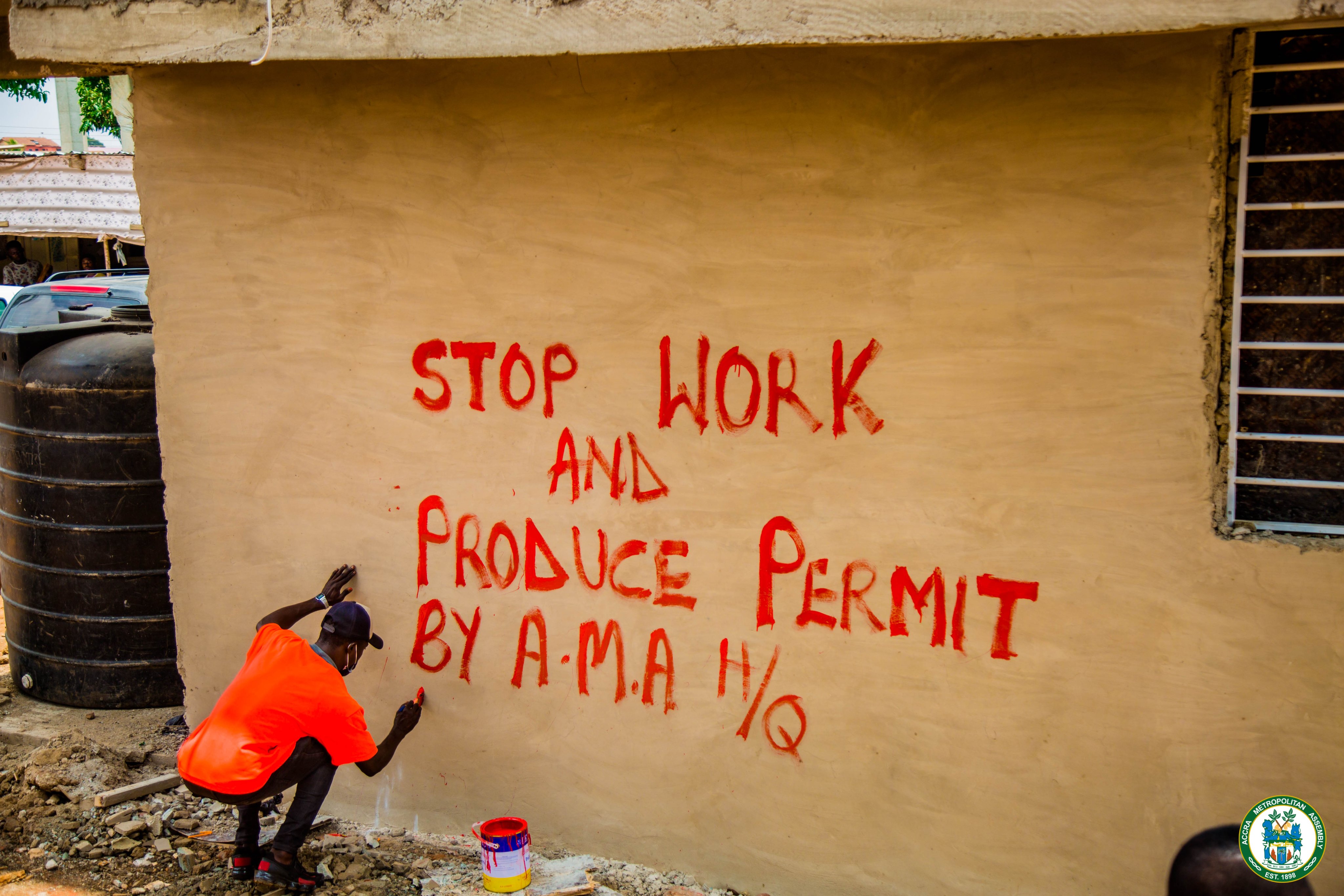Painting ‘Stop work, Produce permit” on unauthorized building not enough notice for demolition-Court tells Assemblies
“Such writings on peoples structures do not conform to the intention of the Act empowering the Assemblies and that if they decided to give notice, it has to be in writing, on paper, specifying the date within which the offender must respond, etc.”

A High Court sitting in the Central Regional town of Mankessim has held that the habit by most Assemblies to paint the words ‘Stop work, Produce permit” on most structures they find unauthorized, does not constitute enough notices for demolition.
It noted that “such writings on peoples structures do not conform to the intention of the Act empowering the Assemblies and that if they decided to give notice, it has to be in writing, on paper, specifying the date within which the offender must respond, etc.”
This was the Judgment of the court presided over by Justice Cecilia N.S. Davis in a suit brought against the Mfantseman Municipal Assembly by Esi Yeboah.
The Plaintiff acquired a piece of land from one Razak Nyarkoh by way of an assignment from her assignors and started building on the same.
She averred that she submitted her site plan and building to the Assembly for a permit but the documents were returned to her to make some amendments before the permit would be granted.
According to her, despite the arrangement she had with the Assembly, they went ahead and demolished her building contrary to the law.
She thus filed a suit contending that the Assembly was mandatorily required by law to serve a written notice on her to show why her building should not be demolished and thus by failing to do so, amounted to carrying out the act contrary to statute and same is illegal, a complete nullity and void.
At the trial, the court made the finding that the plaintiff did not provide any evidence to show that she submitted any building documents to the Assembly and the same was returned and thus the plaintiff built her structure without a permit.
Even though there was no contention relative to the demolition of the plaintiff’s structure by the Assembly, the court had to decide whether the above was indeed contrary to Sections 94(1) and 106(3) of the same.
The court then established per the conflicting positions of the provisions that physical development includes the construction of a building and that where a person carries the same without a permit, the Assembly shall/may give that person a written notice before deciding whether or not to demolish, etc.
Additionally, the court established that despite the conflicting positions on whether to give or not to give written notice per Sections 94(1) and 106(3) of the Act, it is the intention of the framers that a written notice is given to offending persons.
Moreover, the court made a finding that even though various Assemblies are involved in the practice of painting “Stop work, Produce Permit” on unauthorized structures, the defendant Assembly did not provide the basis of authority or power for such notices.
The court also noted that the act of writing on peoples structures does not conform to the intentions of the Act and by their wording thereof, if the Assembly decided to give notice, it has to be in writing, on paper, specifying the date within which the offender must respond, etc.
It, therefore, held that the Assembly failed to give Plaintiff the required written notice per Sections 94(1) and 106(3) of the Local Government Act.


